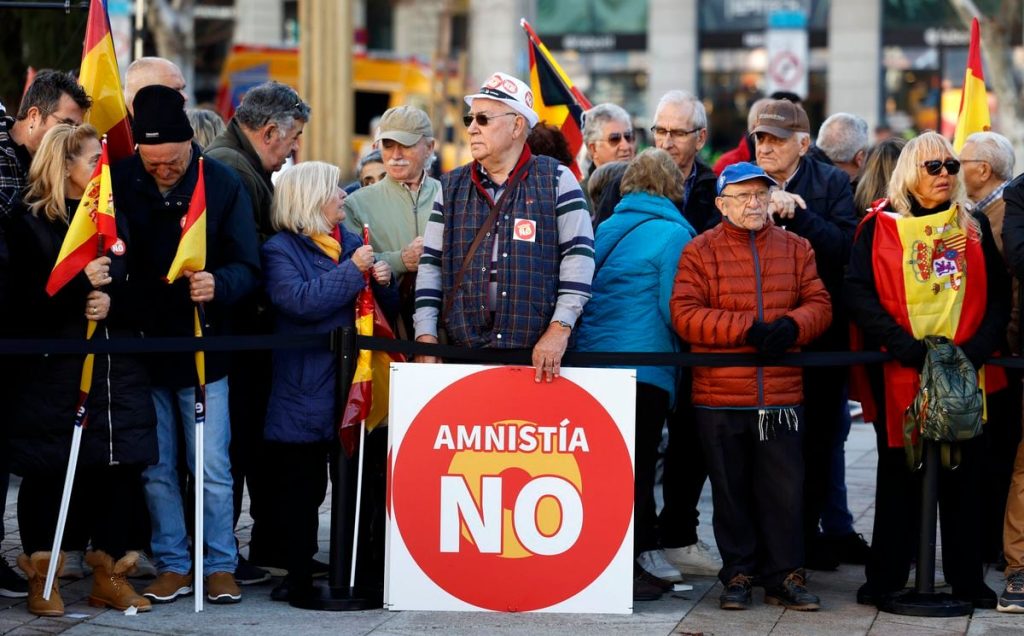The topic of conversation in the media and politics in Spain has been the amnesty law, which many believe will lead to the end of democracy in the country. Right-wing and ultra-right outlets have been vocal in their opposition to the law, claiming that it will undermine the rule of law, equality before the law, democratic institutions, judicial independence, and European funding. The conservative media has been saturated with discussions about the impending downfall of the nation and democracy, with fears of a Sanchista autocracy taking over. However, as the elections in the Basque Country and Catalonia approach, where support for the amnesty law is reportedly higher, the conversation has shifted.
Recent polls suggest that the Basque Country and Catalonia are more accepting of the amnesty law, particularly in relation to crimes related to the Catalan independence process. The movement of former Catalan president Carles Puigdemont towards France and his candidacy for the Generalitat have not sparked the same level of concern about the amnesty law in the media as before. It seems that the so-called fachosphere – a term used to describe conservative media groups – is avoiding discussions about the nation and democracy in favor of focusing on the electoral interests of certain political parties. The media aligned with the Partido Popular in Spain has toned down its coverage of the amnesty law in the lead-up to the Basque and Catalan elections, possibly to avoid harming the electoral chances of their preferred candidates.
The issue of amnesty, which dominated the headlines of major conservative newspapers like ABC and El Mundo for months, has suddenly disappeared from their front pages. Even La Razón, another right-wing publication, has only mentioned the issue sporadically in relation to the potential return of Carles Puigdemont to Catalonia. The Partido Popular seems to be avoiding discussions about the amnesty law until after the Catalan elections, as some of their conservative voters in Catalonia actually support the law. However, once the Basque and Catalan regional elections are over, the focus is expected to return to the amnesty law in the lead-up to the European elections in June.
The ongoing debate surrounding the amnesty law has divided opinions across Spain, with some fearing the end of democracy and others viewing it as a step towards reconciliation. The media coverage, particularly in conservative outlets, has reflected this polarization, with some publications dedicating extensive coverage to the potential consequences of the law while others avoid the topic altogether. As the Basque and Catalan elections approach, the conversation is likely to shift once again, highlighting the regional differences in attitudes towards the amnesty law. The impact of the law on the future of Spanish democracy remains uncertain, but it continues to be a central topic of discussion in the media and political spheres.


